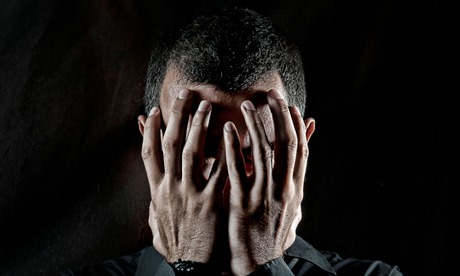My dad killed himself and, having struggled with feelings myself, I want to make sure I deal with them properly. You should too.
'Things always change, as long as you give them the chance to.' Photograph: Alamy
I was 24 when my dad, Peter Manderson, took his own life. We had a troubled relationship and hadn’t spoken to each other for about six years; for no real reason we just stopped. Then one day I got in touch to try and repair some of the damage. It was Boxing Day and we argued over the phone about where to meet. I got angry, and my dad, who was a gentle man, stammered and stuttered. The last words I said to him were: “If I ever see you again I’m going to knock you out.” It all seems so desperately trivial now.
The tragic last hours of Robin Williams’ life have been raked over in minute detail over the past week. Susan Schneider, his wife, has said he was battling depression and anxiety, as well as the early stages of Parkinson’s.
I still don’t know what was going through my dad’s mind when he killed himself in a park not far from where he lived in Brentwood, Essex, in April 2008. I’ll never know. The last time I saw him alive was my 18th birthday. He had been in and out of my life for years. I was brought up by my gran in Hackney, east London, because neither of my parents were capable of looking after me. I just wish that he could have reached out to someone, anyone.
The moment I found out my dad had killed himself is as clear today as it was when it happened. That morning I woke up with a sense of dread knowing that something was very wrong. My gran came into my room with tears in her eyes and said: “Stephen, your dad’s dead. He’s hanged himself.”
His death was a complete shock and it’s still a struggle to articulate how I felt. I went through so many emotions that day. At first I was angry with him for doing what he did. I kept thinking, how could he take himself away from me? Williams’ daughter Zelda said something similar about her dad: “I’ll never understand how he could be so loved and not find it in his heart to stay.”
I thought my dad was selfish for taking the easy way out. But then I quickly realised that I was the one who was being selfish for thinking he was selfish. For someone to be able to do that, I don’t think it is cowardice; it’s the only solution they think they have. The last thing I said to him kept replaying in my head – you have no idea how much I regret that the final words he heard from me were anger and hate. I would give anything to change that. I never got a chance to say a proper goodbye or tell him that I loved him.
Last year in Britain, almost 6,000 people killed themselves, leaving behind families struggling for answers. Men aged between 30 and 44 are most at risk. My dad was 43. I later found out that one of his brothers had killed himself two years before and that another brother, whom I am named after, is believed to have died after allowing himself to fall into a diabetic coma.
Communication is a big problem with us men. We don’t like to talk about our problems; we think it makes us look weak. There have been times when I’ve suffered from anxiety and depression. I even had cognitive behavioural therapy and although that didn’t work for me, I did find that talking about things to someone helped the problem seem smaller than it was in my head. It’s important to let things out and not bottle them up.
Society likes to tell you that you have to be happy all the time, and it’s easy to think that if you’re not happy then there’s something wrong with you. But happiness isn’t permanent, it’s not something you can feel all the time – and neither is sadness.
What happened to my dad and uncles makes me want to deal with things. As much as I love my dad, I don’t want to be the father to my child that he was to me. I wrote the song Lullaby about my experience of depression and how it has affected my life. The most important lyrics are the final two lines: “Things always change, as long as you give them the chance to.”
Know that is true. I just wish my dad did.


No comments:
Post a Comment